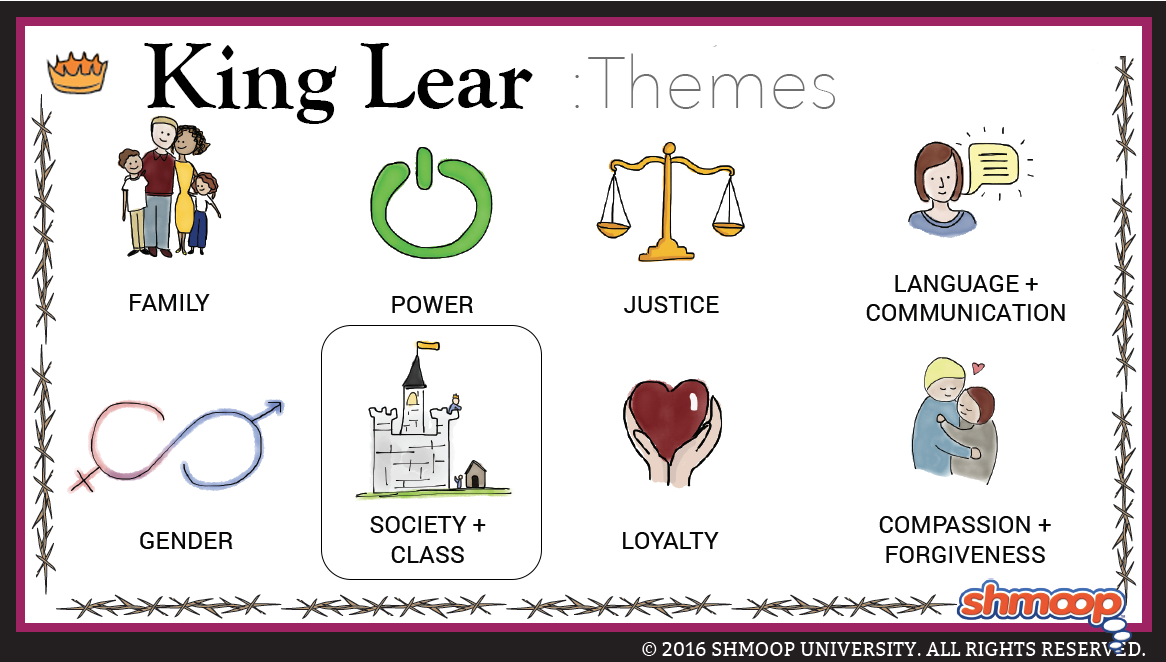 (Click the themes infographic to download.)
(Click the themes infographic to download.)
King Lear isn't just a family drama. Hardly. Our Billy Shakespeare wouldn't ever be so simplistic. This tragedy also picks apart some pretty meaty social issues.
King Lear offers some pretty insightful social commentary on everything from class and politics, homelessness, mental illness, the tensions between youth and the older generation, and so on. For many, the play seems to challenge and critique some existing (sixteenth and seventeenth century) social and political structures while offering some radical solutions. For others, the play takes a good hard look at England's social ills but eventually winds up supporting the status quo.
Questions About Society and Class
- Why is Edmund considered an "illegitimate" son? How does his position as a "bastard" impact his social position in the play?
- How is old age portrayed in the play? How does the younger generation view the older generation? Is there any tension? If so, why?
- Who is "Poor Tom"? What kind of role does this character play? How does he draw attention to the problem of homelessness in the play?
- What happens to King Lear's knights after they are dispersed? Why is their dispersal significant?
Chew on This
Edmund is one of Shakespeare's most complex villains because he has a strong motive for his evildoing—his status as an illegitimate son is always rubbed in his face.
Lear himself might act pretty foolishly, but the real madness in this play comes from society.